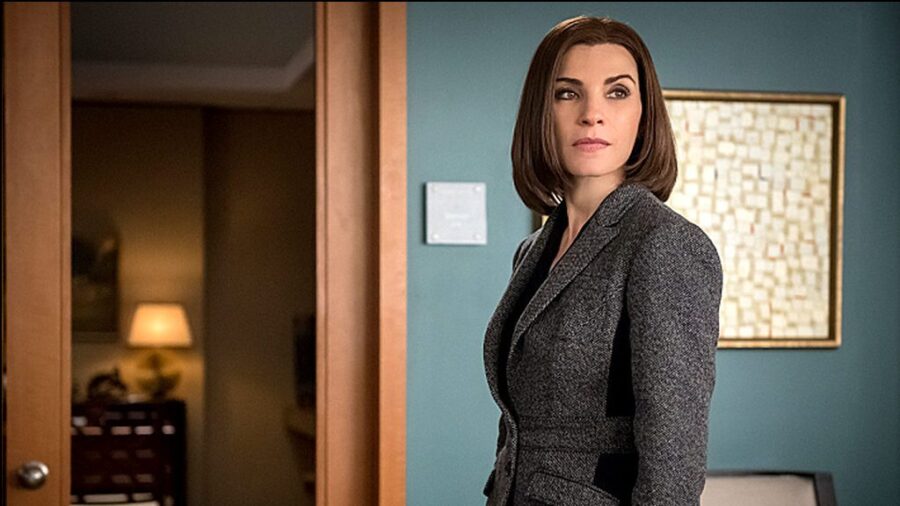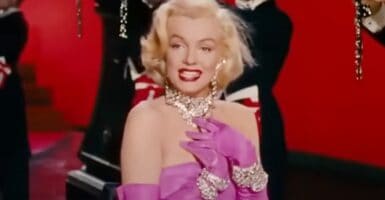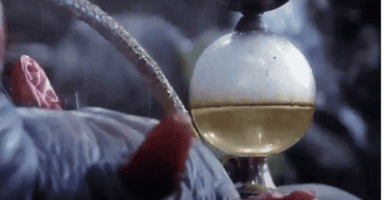Julianna Margulies Claps Back Against Criticism She Shouldn’t Play A Gay Character
Juliana disagrees with everyone saying she shouldn't be playing a gay character.
This article is more than 2 years old

Julianna Margulies defended her decision to play an openly queer character on season 2 of the Apple TV+ drama The Morning Show. In the series, Julianna Margulies plays Laura Peterson, a legendary anchor on the same fictional network where the titular program takes place. Her character was outed in the 1990s and had to start her entire journalism career from scratch. Fortunately, she’s a top-notch reporter and was, therefore, able to claw her way back to prominence. In season 2, she’s brought in to shake things up as a romantic interest for Reese Witherspoon’s character, Bradley Jackson, who herself is discovering new parts of her sexuality later in life.
However, there are many who make the valid point that Julianna Margulies, who is in a heterosexual marriage to attorney Keith Lieberthal, should not be allowed to play a member of the LGBTQ+ community. Especially one whose claim to fame is experiencing an Ellen DeGeneres level of persecution in show business.
Julianna Margulies wasn’t afraid to address the potentially problematic decision of her casting head-on during an appearance on CBS This Morning. When asked if she believes she should be playing a member of the LGBTQ+ community, she noted that she can understand the criticism when it comes to an actor or actress playing a member of a different race or gender. However, when it comes to their place on the spectrum of sexual orientation, things get a bit more complicated.
The actress noted that, first and foremost, criticizing her for playing a member of the LGBTQ+ community because she’s married to a man requires the critic to make a lot of “assumptions” about who she is and what she’s done or felt in her past. While Julianna Margulies stopped short of coming out or addressing her own sexuality in any meaningful way, she raised an interesting point about where people ought to draw the line when it comes to erasing communities by not having stars who don’t identify with them.
She makes the case that being a mother, can she never play a woman without children again? As a married person, can she never play a single woman again? While the obvious salient point in those cases is that the childless and unmarried communities have undergone demonstrably less persecution over the years, her larger point about the line between reality and acting still stands. In fact, Julianna Margulies is not the first person to discuss this issue.
Benedict Cumberbatch was in a similar situation to Julianna Margulies when he played Alan Turing in The Imitation Game and noted as she did that criticizing him over it assumes that he has never tapped into the very private experience of a same-sex attraction. Kristen Stewart echoed those thoughts as well, noting that her relationships with women should not preclude her from playing a straight person in the future.
Still, in a world where members of the LGBTQ+ community are facing very real and problematic examples of erasure in Hollywood, it’s hard to argue with an actor or actress in the community who feels the role and topics that come with it ought to have gone to an LGBTQ+ actress rather than Julianna Margulies.
The Morning Show showrunner Kerry Ehrin even told The Hollywood Reporter that she grappled with that very same idea before ultimately making the decision to entrust the role to Julianna Margulies and hasn’t looked back since.












